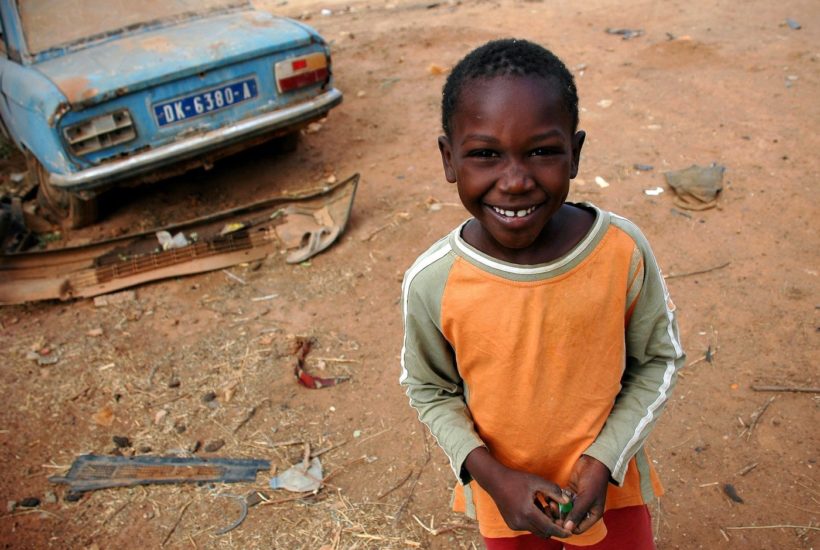Africa
85% of Senegalese households saw a decrease in income due to COVID-19
A report conducted in Senegal showed that a large majority of households appreciated the economic and social measures enacted by the government in response to the COVID-19. However, business support and employment protection measures seem to be the least appreciated. Only 15% of Senegalese households did not see their income decrease since the pandemic outburst.

According to the results of a survey to monitor the impact of COVID-19 on household welfare conducted by the National Agency for Statistics and Demography (ANSD) based in Dakar, 85% of Senegalese households said they had suffered a drop in income because of the COVID-19 pandemic,
The collection phase of the high frequency telephone survey (HFS) to monitor the impact of COVID-19 on households took place from June 3rd to July 19th, 2020 .
The HFS survey was conducted on a sample of 1,220 households. The authors of the survey also said that the questionnaire was designed to monitor the impact of the COVID-19 pandemic on households and covers topics such as knowledge of the COVID-19, the impact of the pandemic on economic activities and sources of income, access to basic services, and perception of well-being.
The survey revealed that “the incomes that contract the most are income from non-farm family businesses and private transfers to households.”
Among the heads of households who had a job before the crisis, 60% kept the same job, 4% changed jobs and 36% stopped working, including 30% for reasons related to the COVID-19.
“Heads of households working in services, commerce, public administration, transport and communication, mines and quarries are particularly affected by the COVID-19 crisis,” said the ANSD.
Read more about the economic problems households in Senegal are facing because of the pandemic and find the most important economic news in the world with the Born2Invest mobile app.
Workers in agriculture seem to be much more spared than their peers
Regarding the impact of COVID-19 on households’ access to basic services, six out of ten households tried to procure food without power. According to ANSD, a quarter of the households that needed medical care did not have access to it, the main reason cited being a lack of money.
The survey also noted that 69% of urban school children have been practicing at least one educational activity at home since the closure of the school structures. 27% of urban school children are in contact with teachers.
With regard to the perception of well-being and satisfaction with economic and security measures, the survey revealed that nearly eight households out of ten perceive a negative evolution of their well-being since the COVID-19. Nevertheless, about three-fifths of households are optimistic that the situation will improve within 12 months.
A large majority of households appreciated the economic and social measures enacted by the government in response to the COVID-19. However, business support and employment protection measures seem to be the least appreciated.
Households are generally satisfied with the preventive measures taken in response to the COVID-19, with the closure of markets remaining the least appreciated.
In terms of knowledge about the COVID-19 pandemic, almost all heads of households (99.8%) know and apply at least one barrier gesture against the pandemic. “This enthusiasm reflected in the figures would however illustrate the beginning of the COVID-19 crisis”, says the ANSD. It adds that the current situation rather relates to a period of relaxation with regard to barrier measures.
On another aspect, nearly nine out of ten heads of households are aware of at least one government measure against COVID-19. The main measures known were travel restrictions (70%), curfews (69%) and prohibition of assembly (68%).
__
(Featured image by 12019 via Pixabay)
DISCLAIMER: This article was written by a third party contributor and does not reflect the opinion of Born2Invest, its management, staff or its associates. Please review our disclaimer for more information.
This article may include forward-looking statements. These forward-looking statements generally are identified by the words “believe,” “project,” “estimate,” “become,” “plan,” “will,” and similar expressions. These forward-looking statements involve known and unknown risks as well as uncertainties, including those discussed in the following cautionary statements and elsewhere in this article and on this site. Although the Company may believe that its expectations are based on reasonable assumptions, the actual results that the Company may achieve may differ materially from any forward-looking statements, which reflect the opinions of the management of the Company only as of the date hereof. Additionally, please make sure to read these important disclosures.
First published in Financial Afrik, a third-party contributor translated and adapted the article from the original. In case of discrepancy, the original will prevail.
Although we made reasonable efforts to provide accurate translations, some parts may be incorrect. Born2Invest assumes no responsibility for errors, omissions or ambiguities in the translations provided on this website. Any person or entity relying on translated content does so at their own risk. Born2Invest is not responsible for losses caused by such reliance on the accuracy or reliability of translated information. If you wish to report an error or inaccuracy in the translation, we encourage you to contact us.

-

 Business1 week ago
Business1 week agoDebt-Fueled Markets, Zombie Corporations, and the Coming Reckoning
-

 Impact Investing6 days ago
Impact Investing6 days agoGlobal Energy Shift: Record $2.2 Trillion Invested in Green Transition in 2024
-

 Fintech2 weeks ago
Fintech2 weeks agoPayrails Secures $32M to Streamline Global Payments
-

 Crowdfunding2 days ago
Crowdfunding2 days agoDolci Palmisano Issues Its First Minibond of the F&P “Rolling Short term” Program

























